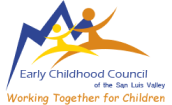Early Childhood Mental Health
Early Childhood Mental Health (ECMH) Consultation consultation focuses on supporting children, Early Childhood staff, and families in all settings where they learn and grow, including home visiting, childcare, and preschool. ECMH consultation has been shown to improve children’s social skills and emotional functioning, promote healthy relationships, reduce challenging behaviors, helps reduce provider stress, burnout, and turnover.
What Does ECMH Consultation Services include?
- Social emotional supports for Staff, children, and families.
- Expressing, labeling, and understanding emotions appropriately
- Success with making friends and getting along with others
- Building skills to problem solve and encourage positive group interactions
- Providing group consultation to process their work with children and families
- Support for administrators related to policy development and implementation
- Provide reflective time for staff and caregivers of young children
- Guide and support families in their social emotion and behavioral health journey
- Support families in their own struggles around challenging behaviors and social emotional group
- Provide parent classes and workshops on an ongoing basis to families in the community free of charge.
ECMH Reflective Coaching
Reflective Coaching provides support to early childhood centers and learning settings. Reflective practice is used to build knowledge and skills for providers to create a social emotionally rich environment that will create a soild foundation for children to learn
ECMH Reflective Coaching Services Include:
- Expanding knowledge and skills of child development.
- Implementation of research based social emotional models on
- Provide Professional Development Opportunities for Early Childhood Professionals
- Practice a relationship-based approach to coaching that will foster the caregivers alibity to teach and interact in positive social emotional ways
- Support for administrators related to policy development and implementation
- Provide classroom wide strategies to caregivers
What other support do we provide?
Parents workshops
Seedlings – Seedlings was developed by Dr. Sarah Enos Watamura who is the Co-Director of the Stress Early experience & Development Research Center, University COVID Coordinator, and Professor and Chair of the Department of Psychology at the University of Denver.
This curriculum is heavily grounded in the developmental sciences. It blends principles derived from:
- developmental neuroscience (how the brain grows and changes beginning with conception).
- what we know about stress and its impacts on the brain, the body and behavior.
- new understandings of how the brain changes when moms and dads become parents.
- research on parenting and how to better support parents in their journey and how we all change
this curriculum strives to be:
- clear and brief.
- helpful for you to identify what you want and how you want to achieve it.
- hands-on: everyone learns best by doing.
- relationship-building and to expand supportive social connections. Supportive connections are protective against adversity.
Parents receive:
- A 10-week, science-based curriculum for parents
- Introduction to the effects of early adversity on development
- 10 self-care/stress management tools
- Multi-modal, hands-on learning
- Support from other parents though cohort-building
- A supportive and judgement-free space to process trauma
Positive solutions for Families
Positive Solutions for Families (PSF) is an evidence-informed seven-part seriesof workgroups. Parents and caregivers will learn how to use positive approaches and effective parenting techniques to improve interactions with their child(ren),which in turn will support social and emotional development and address challenging behaviors.
Overview of Topics Covered
Session 1: Making the Connection: Talk about building positive relationships with children
and the power of positive encouragement.
Session 2: Keeping It Positive: Learn how to use playful interactions to strengthen
connection and understand how positively stated directions can help manage challenging
behavior.
Session 3: Behavior Has Meaning: Become a behavior detective by practicing ways to
determine the meaning of behavior and what influences it.
Session 4: The Power of Routines: Discuss how to set up successful routines and
transitions through the use of preventive strategies.
Session 5: Teach Me What To Do!: Learn how to teach emotions and feelings while
promoting anger management and problem-solving skills.
Session 6: Responding With Purpose… Discuss how we can respond (in a positive way
that works!) when challenging behaviors occur.
Session 7: If I Knew Then… Review past sessions and strategies while discussing best
practices on prevention, teaching new skills, and responses to challenging behavior.
Examine resources for continued education and identify supports for children
FREE program
What is Free?
Fostering Resilience in Early Education (FREE) Program
Services include
- Individualized self-care planning
- Monthly social networking opportunities
- Mindfulness activities to support adult and child well-being
- One-on-one coaching or training to support self-care
Meeting Sequence
1st Meeting-Kickoff Event (pre-recorded OR live virtual): Program Introduction
2nd Meeting: Self Care Planning, set goals
3rd Meeting: Everyone completes the Best Practice Menu (everyone rates how often they are doing each thing on the list)
4th Meeting: Prioritize changes (everyone decide which changes are doable for them in their homes)
5th Meeting: Planning (everyone will decide how they will make their changes happen), discuss support items (we will purchase $100 worth of supplies/FFN to support selected changes)
6th Meeting: Review and finalize plans from previous meeting, introduce Weekly FREE Activities (mindfulness activities)
7th Meeting: Check-in on action plans, Weekly FREE Activities check-in
8th Meeting: Celebration & Introduce coaching
